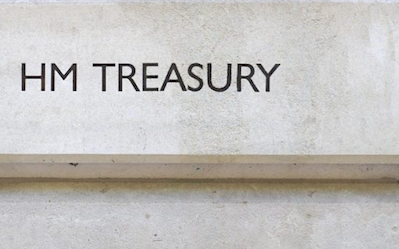UK finance minister Rishi Sunak has been accused of losing £11 billion of taxpayers’ money by paying too much interest servicing the government’s debt.
The National Institute of Economic and Social Research (NIESR) said the losses were a result of Sunak’s failure to insure against higher interest rates a year ago on nearly £900 billion created through quantitative easing (QE).
The NIESR said UK monetary and debt management authorities missed the opportunity to buy interest rate insurance when it was unusually cheap.
The think tank said it recommended that the Treasury undertake a large-scale swap of bankers’ reserves at the Bank of England for newly-issued short- and medium-dated fixed-interest government securities.
The NIESR said this would have “begun the process of reversing quantitative easing, thus helping to contain the inflationary pressures that were by that time clear” and would have given the government some insurance against the cost of rising short-term interest rates.
“The authorities did not act promptly on our recommendation,” said the NIESR.
The think tank said in a paper: “Governments in many countries are ill-prepared for a long period of higher inflation and rising interest rates.
“Quantitative Easing (QE) meant that a significant part of official debt (government and central bank combined) took the form of commercial bank deposits at the central bank (bankers’ reserves).
“When policy rates were close to zero, this was a very cheap form of finance.
“But the policy had the drawback of making official interest rate payments more sensitive to changes in policy interest rates, perhaps tempting governments to put pressure on the central bank to ‘go easy’ on interest rate hikes.
“The United Kingdom is one case in point. In July 2021, bankers’ reserves at the Bank of England had reached £840 billion, and were still rising.
“As an insurance policy against such fiscal risks, and to protect the independence of monetary policy, we recommended that the Treasury undertake a large-scale swap of bankers’ reserves at the Bank of England for newly-issued short- and medium-dated fixed-interest government securities.”
The NIESR added: “The Bank of England’s Monetary Policy Committee has begun to respond to rising inflation, by increasing short-term interest rates.
“However, by not undertaking the swap that we recommended, the monetary and debt management authorities missed the opportunity to buy interest rate insurance when it was unusually cheap.
“In July last year, two-year gilt yields were no higher than 0.10%.
“The interest rate insurance that the government could have bought in July 2021 has now become much more expensive — we estimate the loss over the past year at around £11 billion.
“Such a lost opportunity is an unnecessary cost to the public finances at a very difficult time.
“This calculation takes no account of the mark-to-market losses on bonds held by the Bank of England under its Asset Purchase Facility.
“Since 10-year gilt yields are now over 2.1% (up from 0.7% in July 2021), such losses will be several multiples of our more narrowly defined estimate.
“The market expects that the MPC will raise Bank rate to 1.25% at its June meeting. No one doubts that further increases will be needed.
“A major adjustment in global interest rates, long and short, is beginning to take shape.
“The lesson for the future is not that any one institution lacks foresight about inflation or future interest rates.
“It is rather that decisions about monetary policy and government debt management are at present reached by an opaque and dysfunctional amalgam of the deliberations of central banks and treasuries.
“Insufficient attention is paid to their fundamental interconnections.
“Managing a treacherous interest rate adjustment requires more effective arrangements.”
Professor Jagjit Chadha, NIESR director, said: “Our calculations illustrate the importance of management of government debt.
“The QE programme has created a huge quantity of short-term liabilities which pay bank rate and in a hiking cycle have left the Treasury with an enormous bill and heavy continuing exposure to interest rate risk.
“It would have been much better to have reduced the scale of short-term liabilities earlier, as we have argued for some time, and to exploit the benefits of longer-term debt issuance.
“This is very much a question for the Treasury to answer.”
The UK Treasury said it has “a clear financing strategy to meet the government’s funding needs, which we set independently of the Bank of England’s monetary policy decisions”.
A Treasury spokesperson added: “There are long-standing arrangements around the asset purchase facility — to date £120bn has been transferred to HM Treasury and used to reduce our debt, but we have always been aware that at some point the direction of those payments may need to reverse.
“It is for the monetary policy committee to take decisions on quantitative easing operations to meet the objectives in their remit, and we remain fully committed to their independence.”
